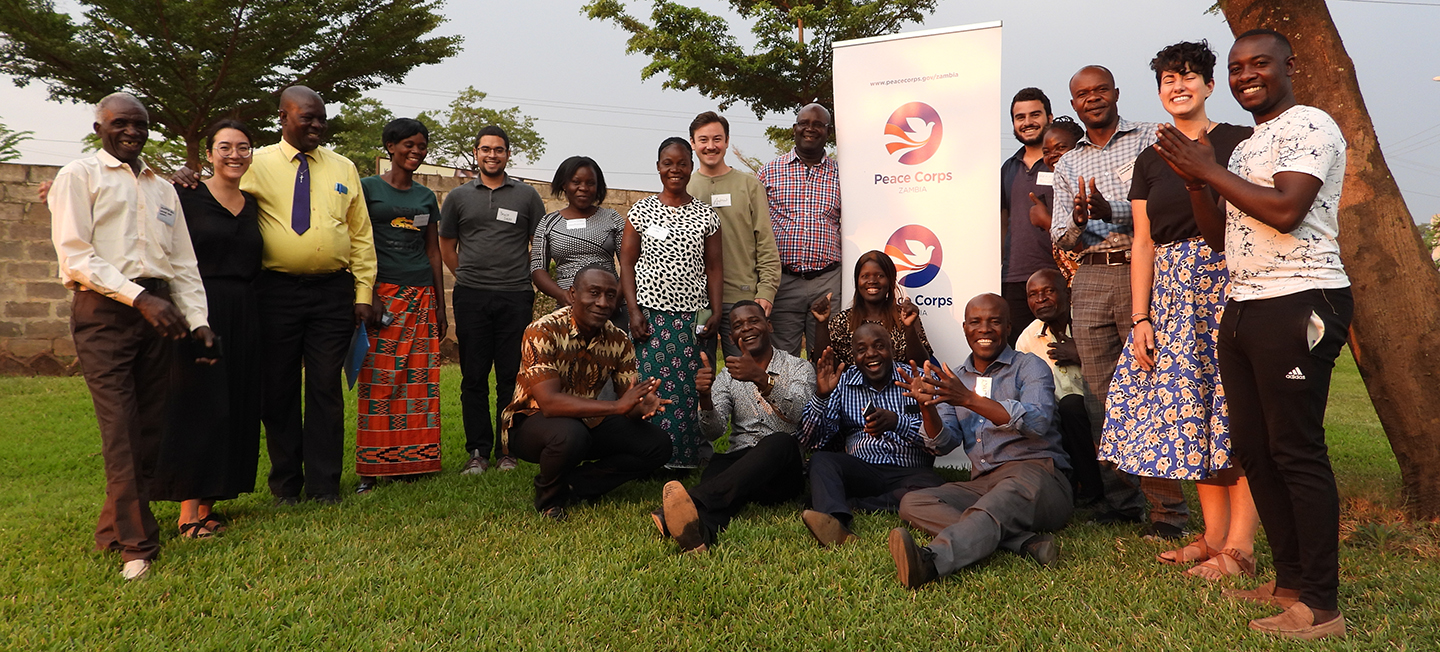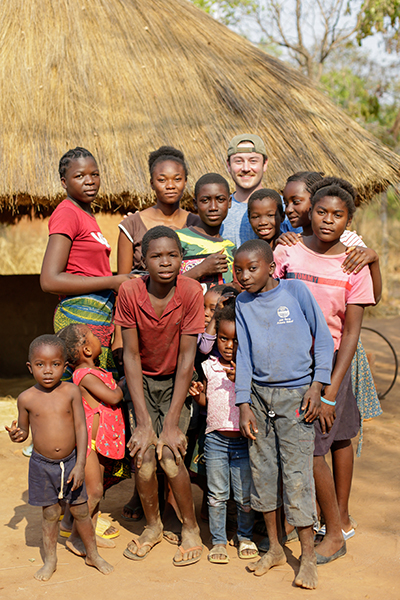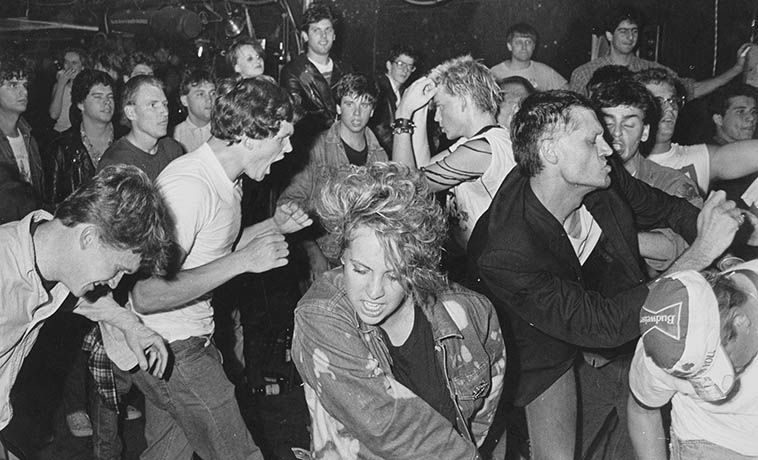Peace Corps calls COM grad to Zambia

Andrew Barrett (ninth from left) with Peace Corps staff and local counterparts in Zambia. Photo: Courtesy Andrew Barrett

When the COVID-19 pandemic started worldwide shutdowns in many industries, nearly 7,000 volunteers in the Peace Corps were evacuated from more than 60 countries. Two years later, volunteers new and old are returning to service, including Andrew Barrett (COM‘17).
Barrett graduated from COM with a bachelor’s in communications. The pandemic led to his layoff at TD Garden in Boston, but it ultimately pushed him to apply to the Peace Corps in March 2021.
Delays from COVID surges left Barrett’s request behind until volunteers were notified that they could be sent out in 2022. Barrett headed to Zambia this summer as an education volunteer, teaching English to students there, supplemented by coronavirus recovery work and education in social justice issues.
Q&A
With Andrew Barrett
How did you react to the invitation to join the Peace Corps?
I was at a Bruins game with three of my siblings on March 24 when I received the invitation. I sat down in my seat and could not stop grinning. I showed my siblings the email and we began to celebrate. I was not prepared for how hard the decision would be, especially with such little time to make it.
In the first few days after I received the information, I was sure that I was not going to accept. I was thinking that it was too big of a risk to remove myself from a successful position, miss my family and friends for two-plus years, miss weddings, babies, everything. It wasn’t until I was driving into work one day when I thought to myself, “Is this really what I want to be doing?” The answer wasn’t emphatically “no,” but I knew that I wouldn’t be asking myself that if I were talking to a class in Zambia. My decision was made before I arrived at work that day.
Did you enroll in BU thinking that the Peace Corps was where you were heading? If so, why here? If not, how did the idea grow during your time here?
I have always been fascinated by the Peace Corps. I heard stories growing up about people who had gone and the work they did. I was always interested, but never really acted on it. I did not enroll at BU thinking that I would one day be in the Peace Corps.
I started volunteering seriously when I was 15-years-old, when I volunteered with the Appalachian Service Project, a year-long fundraising effort culminating in a nine-day trip to the Appalachian region to repair homes. I just completed my 12th year of service with the program four weeks ago.
I did that trip each year I was at BU, but I never thought about doing something like that full-time after graduation. I think, like many others, I was fixated on having to get a good, well-paying job post-grad.
I think my idea, then, of still wanting to do something like Peace Corps was maintained by students telling stories through film, photography, journalism or just personally of humanity. There was, and is, so much to learn about the world we live in, and getting those snippets and viewpoints from other students’ work was rewarding. I also think the political climate at the time had me wondering what I could do that would help the world, and not contribute to the divisions that were deepening.
How will you apply what you learned studying communications at COM to your work in Zambia?
I was always amazed how different people could tell the same story in different ways. In many of my film and photography courses, the assignment was the same for each student, but the products were unique.
There is no right way to communicate. My biggest takeaway from my courses is that knowing your audience is key, and by that, I mean that each person receives information differently, and the challenge is communicating one thing to multiple minds effectively.
COM recently updated its mission to say at the start: “We build understanding through communication education, practice and discovery.” How do you see communication’s role in building understanding among people?
The teaching I will be doing is obviously more direct communication with the goal of improving my students’ understanding of the English language … I imagine the moments that will build better understandings of each other will take place outside of the classroom in the form of storytelling, watching videos, singing, dancing, cooking and eating together, and more.
I think that persuasive, honest communication is most important to better understanding others. We are living in a time where people can seek information that only supports established beliefs, not challenge them, and it is increasing cultural divisions. The magic of persuasive, honest communication is that it forces us to mold our understanding of things and each other.


